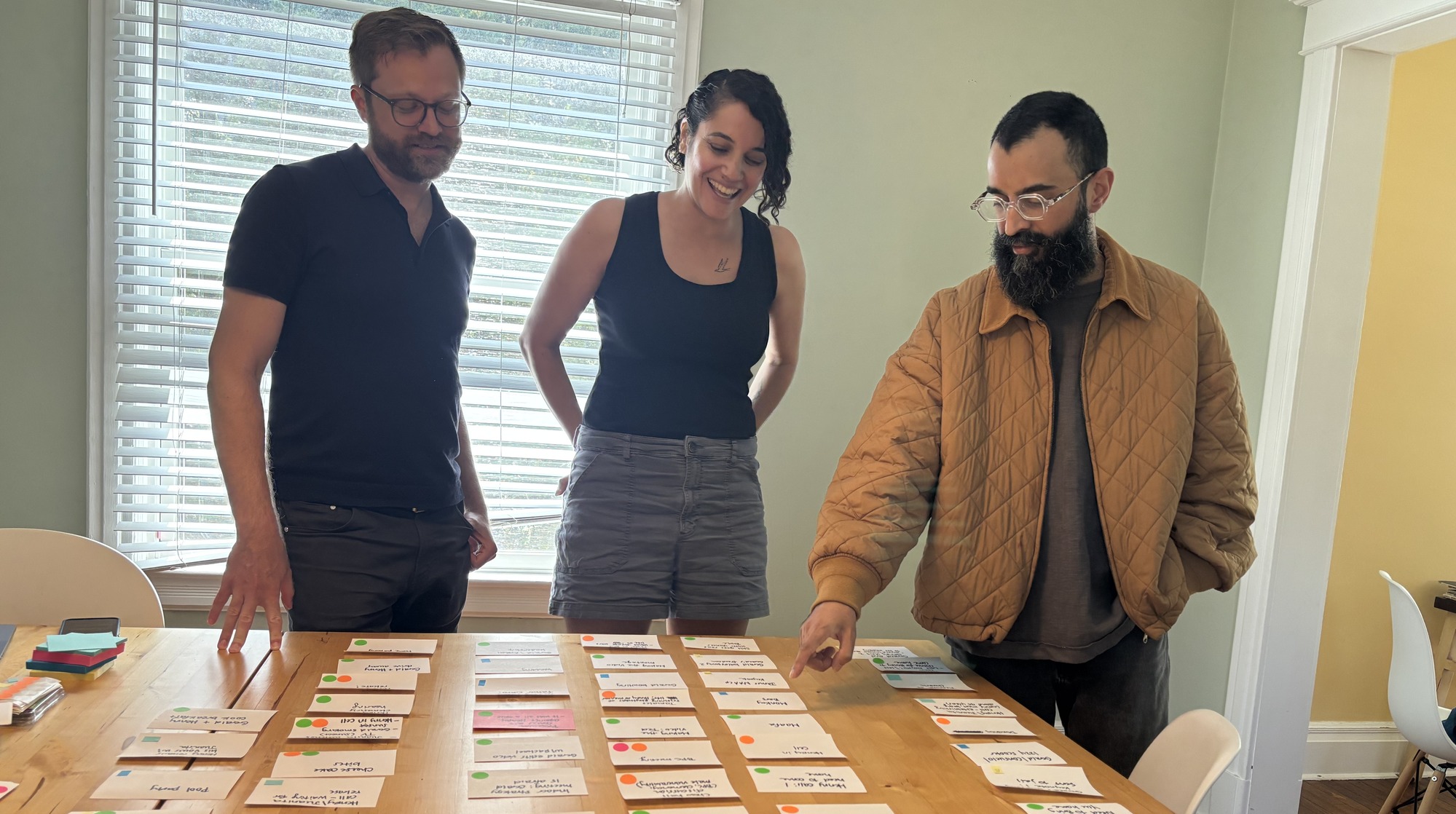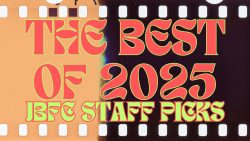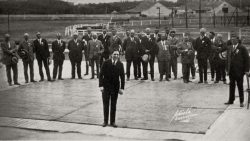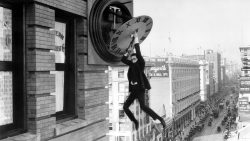Posted August 12, 2025
Artists-in-Residence: Fahd Ahmed, Rachael DeCruz, and Jeremy Levine
As part of our ongoing interviews with Artists-in-Residence at the Jacob Burns Film Center, we caught up with filmmakers Fahd Ahmed, Rachael DeCruz, and Jeremy Levine earlier this month to discuss their current work-in-progress. Fahd returns to the Burns after a previous residency in 2019 with his co-producer and wife Jude Chehab for the film Q (which went on to win the Albert Maysles award at Tribeca and screened at the JBFC in 2023).
Rachael, Jeremy, and Fahd are currently working on a poetic verité film Nine about the power of love and community in the fight for justice.
- How did this residency come about, and how did you learn about the Burns?
Rachael: We knew we wanted a set amount of time away from daily life—time to really dig into the edit, be creative, and break out of our routine. Our editor, Fahd, and his wife, Jude, had done this residency before, and when we spotted their photo on your website, we thought “Oh, we should reach out to Jacob Burns”.
Jeremy: I’ve known about the Burns for a long time but hadn’t had a chance to visit. I was really excited—especially because our incredible editor is based across the ocean. We knew we needed space to be together in person to really make progress in the edit. This residency was an amazing opportunity to spend a few weeks together.
Fahd: Coming back here this week has been great. I really like the house—it’s a funny place because when you first arrive, it’s a bit creepy. But by the end of the day, you feel nostalgic. Last time, I remember packing my bags, walking outside, and thinking how cinematic the place feels. It has a certain space and atmosphere that feels nostalgic, like the kind of places you see in American films. It’s always sad to leave. It’s been great to return, spend a few weeks here, and get creative. - For readers who don’t know about your project yet, could you tell us what Nine is about?
Rachael: Nine is a documentary about Gerald Hankerson, a community leader based in Seattle, and his relationship with his father figure, Henry Grisby, whom he met while in prison. The film follows Gerald’s present-day fight to bring Henry home. For us, it’s about the power of relationships and how they can sustain people through decades-long fights for freedom.
Jeremy: We’re also taking a very formalist, cinematic approach to the material. It takes a different approach than one might expect from a story like this.
Fahd: As a non-American, I find the history of incarceration here fascinating—it’s a window into something I didn’t grow up with. Gerald is such a profound man, and Henry is such a special, kind human being. This is a documentary, not fiction, but these men are bigger than fiction. Their story is important—not just for Americans, but for what it represents in a broader context. The film has surface beauty and underlying beauty, but also roughness and tension. I’ve been working on it for a year now, and it doesn’t feel like work. I just sit with the material and discover things. It’s like someone gives you a box of mixed-up jewels and you slowly find the polished gems. That’s the magic. It’s also about the beauty of collaboration. If you don’t enjoy collaboration, you probably shouldn’t make films. You bring an idea, Rachael takes it to level two, Jeremy might take it to level three, then I’ll come back with something else. It’s a communal process, and that’s what makes it beautiful.
-
What does it mean to have this space to work together physically, especially since you’ve mostly communicated via Zoom?
Rachael: It’s everything. Relationships are at the heart of this film and of our process. Being in person—whether or not we’re actively working—strengthens our connection and makes the work stronger. Breakthroughs happen when you have space and time together, not just a 60-minute Zoom where you’re racing through an agenda.
Jeremy: On Zoom, it’s regimented, and there’s a time difference. We can’t just call each other at 2 a.m. with an idea. Here, we can be deep in our own edits, then suddenly say, “What if we tried this?” and start a whole conversation. Those spontaneous moments don’t really have an equivalent in the virtual world.
-
How did you first learn about Gerald’s story, and what has your relationship been like?
Rachael: I’ve known Gerald for over a decade—we used to work together in a tiny office. I was always drawn to his leadership and the way he shows up in the world. At first, I didn’t know much about his backstory, but over time I learned more and wanted to help share it. We actually started working on a book together about his life. At some point, I thought, This is hard to write—let’s make a film instead, it’ll be easier. Turns out it’s definitely not easier, but it’s a better medium because Gerald has such presence on camera. On the page, it fell flat; on film, you feel it. The process has also allowed us to build a beautiful relationship with Henry, which has been one of the great joys of my life.
Jeremy: It’s like having a grandfather again, which is amazing…and also means I have yet another person I’m letting down by not calling enough.
-
Are there any artists, films, or works inspiring you while you make this film?
Jeremy: One thing we didn’t even know when we applied to this residency was that we could go to the JBFC Theater whenever we wanted and that’s been amazing! No creative process is without frustration, and sometimes you just need to step away, see a film—any film—and come back refreshed. You start thinking, “How did they do that?” and “Could that apply to our work?” We’ve also used the screening room here. Tonight we’re planning to watch All That Breathes, which is one of my favorite documentaries. It’s a very different story, but its patience and beauty are inspiring.
Rachael: We’re telling this story entirely through vérité, with no interviews, so we’ve been looking to narrative films for inspiration too. Barry Jenkins’ work has been a big influence—thinking about how to tell a story in a way that makes the audience feel they’re on a journey with the characters.
Fahd: I don’t think there’s a single film that matches what we’re doing—it’s its own thing. But older documentaries influence me a lot. One of my favorites is Elvis on Tour. My mum was a big Elvis fan, and we had it on VHS. The editing is so precise, yet it feels organic. I watched the Chuck Berry documentary recently that had the same patience—they’d let a scene run for five minutes without cutting. Modern films can feel like fast food—quick and heavy-handed. Older films often have a solidity and invisible structure that lets you really fall into the characters. I try to bring that sensibility to this work.



